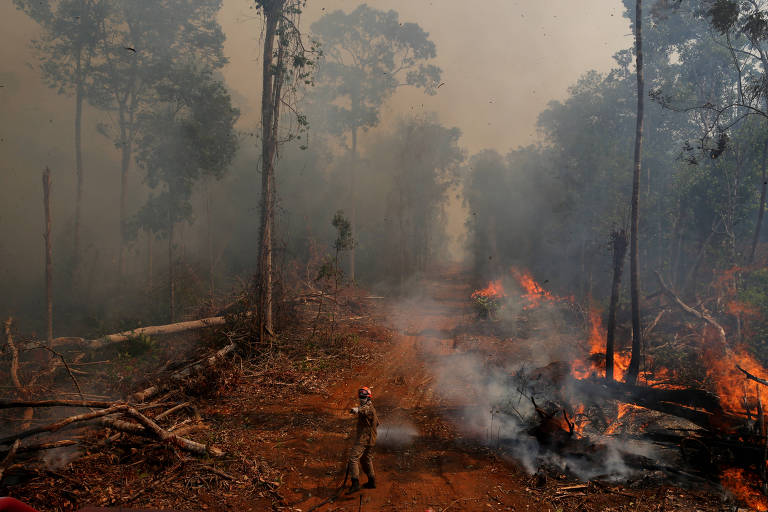Although illegal deforestation, burning, and land grabbing are often carried out by independent groups of large exporters, the profit that keeps the cycle thriving in the Amazon is supported by global commodity chains—particularly timber, meat, and soy.
Companies like JBS, Bunge, and Santander are accomplices in the Amazon deforestation, according to a study that investigated the relationships between Ibama-charged groups and large commodity consumers in the United States and Europe.
A few months before the signing of the trade agreement between the European Union and Mercosur, signed in late June, an investigation led by the NGO Amazon Watch, in partnership with Brazilian and European organizations, sought to connect the points of these production chains.
The objective was to alert European and American consumers - who account for 18% and 11% respectively of Brazilian commodity exports - about their responsibility for the conservation of the Amazon.
The study, completed in April, investigated business relationships of 56 Ibama-certified companies over the past two years with brands consumed in Europe and the United States.
Among the dozens of multinationals found as buyers of companies that have committed recent infractions are the largest Brazilian meatpackers, such as the JBS group, and soybean giants like Bunge and Cargill.
In a statement, Bunge and Cargill deny that their activities are related to deforestation and contested Ibama's assessments. "They are unfounded," said Cargill's statement.
JBS said it monitors satellite-supply cattle farms daily and cross-checks data with the list of areas embargoed by Ibama and the dirty list of slave labor by the Ministry of Economy.
Translated by Kiratiana Freelon
